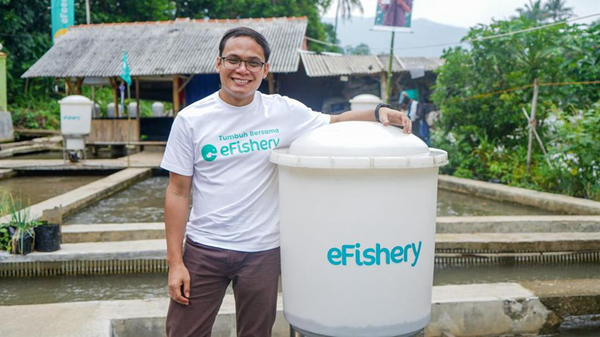Bhinneka Tunggal Ika (unity in diversity), the national motto of Indonesia, inscribed in the country’s emblem, the Garuda Pancasila, is highly relevant to Indonesia, given the diverse backgrounds of its people in terms of ethnicity, culture, language and religion. This motto has become increasingly relevant in maintaining Indonesia’s unity amid the Feb. 14 election, when citizens chose between three presidential candidates who will serve from 2024 to 2029.
The nation is currently waiting for the official vote results from the General Elections Commission (KPU), although the quick and real counts have already shown which the winning ticket is.
It is not an exaggeration to call the democratic event in Indonesia the largest and most complex election held in a single day in the world. More than 204 million voters chose not only their favorite presidential and vice-presidential candidates but also representatives in the national and regional legislatures.
The ballots were cast in more than 820,000 polling stations (TPS) across the archipelago, including one in Suropati Park in the Central Jakarta upmarket area of Menteng, which I headed.
Serving at one of the TPS in an elite area has its uniqueness and challenges as the voters are mostly “well-educated and wealthy” or often referred to as “old money”. The polling station was located very close to the center of power and authority. Some public figures, such as the artist Dian Sastrowardoyo, and former high-ranking officials, such as the sixth vice president, Try Sutrisno, exercised their voting rights at one of the polling stations in Suropati Park.
From year to year, the polling stations in Suropati Park have been one of the places visited by representatives of other countries’ poll commissions, representatives of foreign embassies and international nongovernmental organizations under the Indonesia Election Visit Program (IEVP) organized by the KPU.
These delegations visited the TPS that I headed and observed the voting process from registration, voting to the final step, in which voters dip their fingers in ink. The presence of these foreign delegations prompted tightened security.
However, the festive atmosphere of democracy at the “elite” TPS was similar to that at other TPS across Indonesia, be they in rural or urban areas. The turnout at my TPS was 80 percent of the voters registered on the Permanent Voter List, in addition to residents who were on the Additional Voter List, who were mostly domestic service workers.
The high turnout was evidence of enthusiasm. To enliven the event, the residents around Suropati Park voluntarily provided freebies, entertainment, such as live traditional music and folk song performances, and various local foods.
Voting day is a rare opportunity for Menteng residents who are busy with their daily activities to socialize with their neighbors.
One noteworthy aspect is the significant involvement of young people in the elections. Not only did Gen Z and Millennials make up 55 percent of the voters (around 114 million), but the younger generation showed a willingness to engage in the political process.
About 80 percent of poll workers in my subdistrict are under the age of 40. This demonstrates a positive indication for Indonesia’s future, reflecting the strong interest of young individuals in protecting democracy.
The active involvement of young people as poll workers is crucial. Their better health and stamina are ideal for the very draining and demanding election process. Moreover, this is the first time the KPU has adopted an application, Sirekap, to publish the vote counting and tabulation processes. This year, poll workers were responsible for uploading the local vote counts, which were then heavily criticized by the public for their weaknesses.
In my TPS, the entire process finished 15 minutes after midnight (18 hours of work). At many TPS, the job was done by the next morning (more than 24 hours).
Despite the various complexities, in general, the election ran peacefully and smoothly, showing a collective commitment to upholding the values and resilience of Indonesia’s democratic institutions.
This collective commitment is also felt on a larger scale. The nation seemed more united this year than in the previous elections in 2014 and 2019. Polarization occurred but at a less intense level.
The three-horse race of the presidential election has given the people more options, unlike the divisive two-horse race in 2014 and 2019. I believe Indonesian society is now wiser and more mature in dealing with differences. Although ideological battles, narratives and political debates, mainly related to presidential candidates, happened, they were limited to the media and social media.
Society today is more engaged in policy discussions than in fostering enmity. Group discussions are filled with debates about the advantages of various programs and political promises from the presidential candidates and reducing the tension seen in 2019.
In this year’s elections, the main narrative that emerged was the neutrality of the bureaucracy and the government, rather than identity politics which marked the elections in 2014 and 2019.
Regardless of the election results and our nation’s future leadership, the beauty of the 2024 election lay in the unity it inspired. On election day, polling stations officers worked tirelessly, representing various backgrounds but united in their commitment to ensure a fair process.
The atmosphere during the vote counting resembled a collective celebration, like supporting a soccer team. Cheers and jeers are expressions of victory, defeat and, most importantly, the celebration of democracy. As an ordinary citizen entrusted to serve on the local election committee, I found the 2024 presidential election brought about a harmony that had never been seen before.
A positive evolution in society’s attitude toward the election process was visible, fostering unity rather than disunity. As an ordinary citizen, I am proud to have contributed to an environment where differences are accepted and our shared aspirations for a harmonious future are prioritized over divisive ideologies.
May Bhineka Tunggal Ika continue to shape our nation’s path.
Rizky Akbar Ibrahim
Consultant, Kiroyan Partners
Source: The Jakarta Post, February 24, 2024.
Find out more from The Jakarta Post release here.



